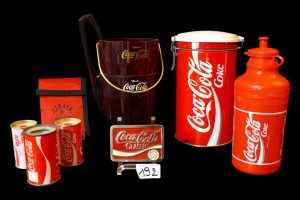Introduction
Sustainability is no longer just a buzzword or a passing trend. It has become an essential aspect of our modern society, shaping the way businesses and consumers think and behave. One area where this shift is particularly noticeable is in the world of branded merchandise, commonly referred to as ‘swag.’ Brands are increasingly making eco-friendly choices a priority, both in the products they create and the materials they use. In this blog post, we will explore the reasons behind this growing focus on sustainability, the benefits it brings to both brands and consumers, and some innovative examples of sustainable swag that are making a real impact.
Why Sustainability Matters
There are several reasons why sustainability has become a priority for businesses in recent years. The most obvious is the environmental impact of our current consumption patterns. As a society, we are using resources at an unsustainable rate, leading to pollution, habitat destruction, and climate change. By prioritizing sustainability, brands can help to minimize their environmental footprint, ensuring that they are part of the solution rather than the problem.
In addition to the moral imperative to protect our planet, there are also financial incentives for businesses to embrace sustainability. Consumers are becoming increasingly environmentally conscious, with a growing number of people seeking out eco-friendly products and services. Brands that can demonstrate their commitment to sustainability are likely to attract these consumers and foster greater brand loyalty. Moreover, sustainable practices can also result in cost savings, as businesses find ways to use resources more efficiently and reduce waste.
Finally, there is a growing recognition that sustainability is good for business in the long term. Companies that fail to adapt to the changing landscape risk falling behind their competitors and losing market share. As a result, sustainability is no longer just a niche concern but a mainstream business priority.
The Benefits of Sustainable Swag
Branded merchandise has long been a popular way for businesses to promote themselves, reward loyal customers, and create a sense of brand identity. However, traditional swag items such as disposable pens, plastic water bottles, and cheaply made T-shirts often have a significant environmental impact, contributing to waste and pollution. By making eco-friendly choices a priority, brands can enjoy several benefits.
1. Improved Brand Image
Brands that invest in sustainable swag can enhance their reputation and appeal to consumers who value environmental responsibility. By showcasing their commitment to sustainability through their choice of promotional products, brands can create a positive association in consumers’ minds and build trust with their target audience.
2. Longevity and Quality
Sustainable swag often involves a focus on durability and quality, with brands opting for items that will stand the test of time rather than disposable or cheaply made alternatives. This approach not only reduces waste but also ensures that promotional items continue to serve their purpose for longer, maximizing the return on investment.
3. Cost Savings
While sustainable swag may sometimes involve a higher upfront cost, this investment can pay off in the long run through reduced waste and more efficient use of resources. Additionally, as demand for eco-friendly products grows, economies of scale are likely to bring down the costs associated with producing sustainable merchandise.
4. Employee Engagement
Sustainability is an issue that many people feel passionately about, and companies that demonstrate a commitment to eco-friendly practices are likely to inspire greater loyalty and engagement from their employees. By providing sustainable swag, businesses can help to foster a positive workplace culture and boost employee morale.
Innovative Examples of Sustainable Swag

As brands look for ways to make their promotional products more environmentally friendly, we are seeing some innovative and creative approaches to sustainable swag. Here are just a few examples:
1. Reusable Water Bottles
One of the most significant sources of plastic pollution is single-use water bottles. By offering branded reusable water bottles made from eco-friendly materials such as stainless steel or glass, companies can help to reduce plastic waste while promoting their brand. These bottles not only have a lower environmental impact but also encourage healthier habits, as users are more likely to stay hydrated throughout the day.
2. Recycled and Organic Textiles
T-shirts, tote bags, and other textile-based promotional items can have a considerable environmental footprint, particularly when made from non-organic, non-recycled materials. Brands can minimize this impact by opting for textiles made from organic cotton, recycled polyester, or other eco-friendly alternatives. Not only do these materials reduce the use of harmful chemicals and energy in the production process, but they also tend to be more durable and comfortable, making them a popular choice for consumers.
3. Solar-Powered Gadgets
Promotional gadgets such as portable chargers, Bluetooth speakers, and flashlights can be both useful and appealing to consumers. By choosing solar-powered alternatives, brands can reduce the environmental impact associated with these items while also promoting the use of clean, renewable energy sources. Solar-powered swag items also have the added benefit of being self-sufficient, meaning they do not require the user to purchase batteries or other consumables, reducing waste and saving money.
4. Plantable Seed Paper
An innovative and eco-friendly alternative to traditional paper products, plantable seed paper is embedded with seeds that can be planted to grow flowers, herbs, or vegetables. By offering branded notebooks, business cards, or other paper products made from plantable seed paper, companies can help to promote biodiversity and offset their carbon footprint. These items also offer a unique and memorable experience for the recipient, as they can watch their branded swag transform into a living, growing plant.

5. Upcycled and Repurposed Materials
Some brands are exploring the use of upcycled or repurposed materials for their promotional products, turning waste or discarded items into something new and useful. Examples include bags made from old billboards, coasters created from reclaimed wood, or pencils made from recycled newspapers. By giving new life to these materials, companies can reduce waste while also demonstrating their commitment to sustainability in a tangible way.
Conclusion
As society continues to grapple with the environmental challenges we face, it is increasingly important for businesses to prioritize sustainability in all aspects of their operations, including their choice of branded merchandise. By investing in eco-friendly swag, companies can not only minimize their environmental impact but also enjoy a range of benefits, from an improved brand image to cost savings and employee engagement.
Moreover, the growing demand for sustainable products is driving innovation and creativity in the branded merchandise industry, resulting in a wide range of eco-friendly promotional items to choose from. As brands continue to prioritize sustainability and consumers increasingly seek out environmentally responsible products, we can expect to see even more exciting and inventive examples of sustainable swag in the future.




